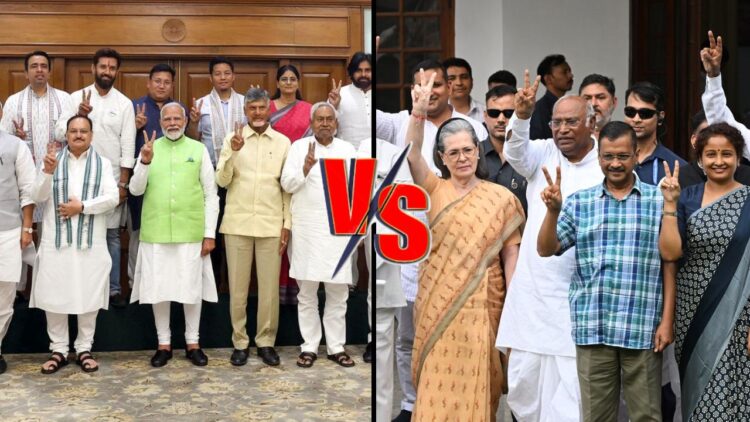The Waqf (Amendment) Bill, 2024, is set to be introduced in the Lok Sabha today, but the opposition, led by the INDI Alliance, is already gearing up to oppose it fiercely. The bill aims to bring much-needed reforms in the management of waqf properties, ensuring transparency and accountability.
However, the opposition parties are trying to mislead the public by claiming that it is an attack on Muslims, despite the fact that the amendments will actually strengthen the system.
Why the Opposition Fears NDA’s Waqf Amendment Bill?
In simple terms, a waqf is a charitable or religious donation, mostly in the form of property, made by Muslims. But most of these donations are made without valid documentation. The earnings from such donations are used to maintain mosques, graveyards, and fund the education of Muslim children and orphanages.
One of the key points of contention between the central government and the INDI alliance is that the new altercations will include non-Muslims as members in the Central Waqf Council and state Waqf boards. However, the INDI bloc argues that this change could undermine the working of these bodies, which are intended to manage properties donated by Muslims for religious or charitable purposes.
The INDI bloc’s opposition to the Waqf Amendment Bill portrays its relentless commitment to Muslim appeasement, even at the cost of fairness and transparency. Instead of acknowledging the fraudulent mass land encroachments enabled by the earlier law, which allowed vast tracts of land to be wrongly classified as waqf properties, the INDI bloc continues to shield these irregularities.
Why are the NDA and INDI bloc locked in a heated debate over the Waqf Amendment Bill?
Final Authority Over Waqf Disputes: The bill grants a senior state government official the ultimate power to decide whether a property belongs to the waqf or the government. Earlier, the 2024 draft had assigned this role to district collectors. The shift in authority has fueled concerns over possible political influence in property disputes.
Reshaping the Waqf Tribunal: The bill alters the composition of the Waqf Tribunal by including a district judge and a state government official at the joint secretary level. This has sparked controversy, as critics argue it strengthens the government’s grip over waqf-related legal decisions.
Scrapping the “Waqf by User” Clause: The bill proposes removing the provision that allowed properties to be classified as waqf if they had been used for religious or charitable purposes for a long time, even without formal documentation. Opponents fear this could strip several long-standing waqf properties of their legal status.
The INDI alliance’s resistance to much-needed reforms proves that their priority is not justice but vote-bank politics. By opposing the removal of the “waqf by user” clause and resisting government oversight, they are essentially defending land grabs that have gone unchecked for decades. Their stand against the bill is not about protecting minority rights but about preserving a system that has been misused for political gains.

















Comments